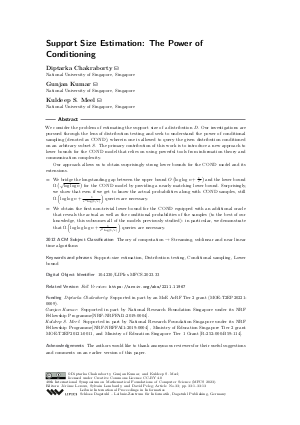LIPIcs.MFCS.2023.33.pdf
- Filesize: 0.67 MB
- 13 pages


 Creative Commons Attribution 4.0 International license
Creative Commons Attribution 4.0 International license































Feedback for Dagstuhl Publishing